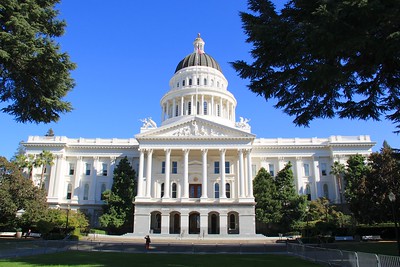California companies and their employees have clashed throughout the pandemic over whether employers should tell workers if they have potentially been exposed to the coronavirus on the job. Now a bill passed by the Legislature and headed to the governor’s desk, AB685, seeks to clarify what companies must tell employees and state officials about such risks.
Workers’ advocates say the legislation is key to shoring up workplace safety and retaliation protections for employees when it comes to reporting a case of the coronavirus. But business groups are worried the bill is still too vague on what it requires of companies and amounts to a public shaming when an outbreak is associated with a company.
The bill is awaiting Gov. Gavin Newsom’s signature after the Assembly included some amendments from the Senate.
AB685 would require employers to give written notice and instructions to workers who may have been exposed to the coronavirus at work. It also requires that businesses notify health authorities if infections become widespread, information that the California Department of Public Health can then make public.
The bill also creates anti-retaliation protections for employees who report infections, to encourage them to come forward.
Companies are already required to disclose cases of the virus to local health departments, but that information is not public. Companies are also required to report workplace-related injuries to state regulator Cal/OSHA, but there has been some disagreement on whether that includes cases of the coronavirus.
“The bill makes mandatory what many employers already are doing and what health authorities have been recommending that they do, which is notify employees when they’ve possibly been exposed and do contact tracing,” said Charles Thompson, a lawyer at the San Francisco office of Ogletree, Deakins, Nash, Smoak & Stewart.
How broadly a company notifies workers about a workplace infection has largely been up to employers and local health departments during the pandemic, however.
In the Bay Area, cases of the coronavirus at electric-car maker Tesla’s Fremont plant have led some workers to speak out about what they feel is a lack of transparency around potential infections from co-workers. Tesla conducts rigorous contact tracing but limits notifications to workers with close contact to an infected individual.
Business critics of the bill including the Western Growers, an Irvine association representing farmers in Arizona, California, Colorado and New Mexico, have questioned what “potential” exposure means and said that it is not clear what employers have to tell their workers when a case is identified.
“We are still very much opposed to AB685 primarily because we’re very unclear as to what this measure is going to do to make the workplace more safe,” said Matthew Allen, the group’s vice president of state government affairs.
Allen said that a host of amendments he hoped to see added to the bill had been left out but that a clearer definition of what constitutes a work site subject to the bill, particularly in agricultural settings where fields and indoor sites are involved, was added.
Despite the reputational risk to businesses of a disclosed infection, increased transparency about the virus in the workplace will help workers protect themselves, said Linda Delp, a UCLA professor and director of the school’s Labor Occupational Safety and Health Program.
“I can’t tell you how many calls and questions we’ve gotten at (the program) about ‘My employer is not being up-front with me about what is happening,’” Delp said. “As much clarity as possible will help workers to feel like they are at least being told up front what’s happening in the workplace,” she added.
Delp said underreporting and the sheer number of virus cases make it almost impossible for local and state authorities to track and trace them in the workplace without the help of employers.
“I don’t see an alternative,” Delp said.
It is not clear if Gov. Newsom will sign the bill, but Allen of the Western Growers said he expects it will become law.
By Chase DiFeliciantonio
Chase DiFeliciantonio is a San Francisco Chronicle staff writer. Email: chase.difeliciantonio@sfchronicle.com Twitter: @ChaseDiFelice
Originally published September 1, 2020 at https://www.sfchronicle.com/business/article/California-bill-requiring-c…
Photo by David Fuller

